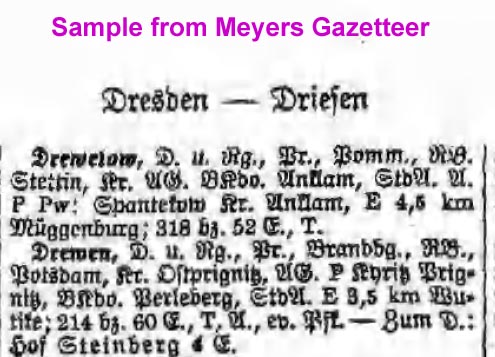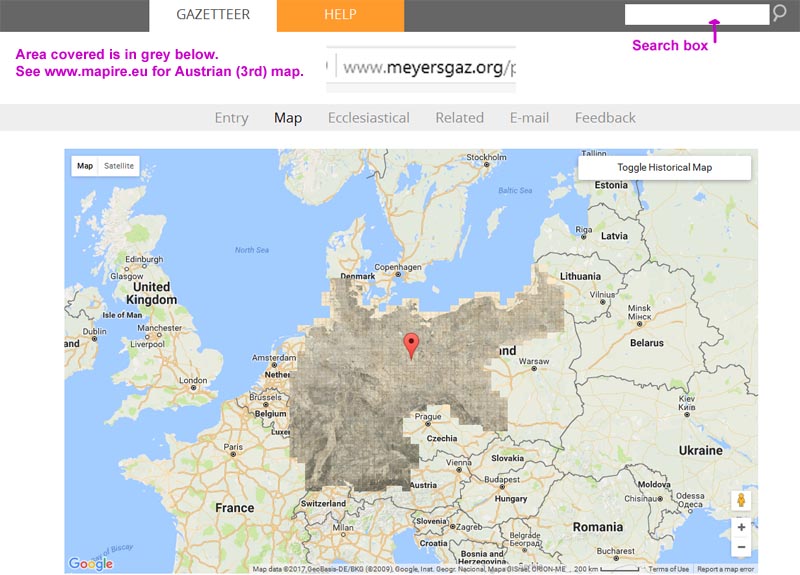Tip 4, Researching your Family in Germany
If you do not know the name of your ancestral village:
- Look in Tip 5 Researching the Journey from Germany to Galicia section to see if you can identify your ancestors home village from emigration records. If you still have no luck, check out the family books in Galicia in Tip 6 Researching your Family in Galicia section. Sometimes home villages are mentioned. Finally, check out the Verein fur Computergenealogie website which is a tremendous resource for family research in Germany. Here is a link to their English Wiki http://wiki-en.genealogy.net/Main_Page.
If you know your village here are a couple of valuable resources to check out:
- First is Rolf Freytag's website which makes available for purchase a large number of German familybooks on CDROM (much like the Galician familybooks below). His site is in German. You can find information on how to order CDROMs for shipment to America there. We would also suggest using Chrome/Edge or the Google translator to translate descriptions on his pages to your native language. He also provides links to indexes of surnames found on his CDROMs.
- The second valuable resource is in the LDS Family History library. It is called Die Ahnenstammkartei des Deuschen Volks (Master card index of the ancestors of the German people). This collection is huge group of donated personal family histories (2,700,000 personal names) created over many years by family members in Germany and maintained by Deutsche Zentralstelle für Genealogie.
Part 1 is a surname index of all surnames found in this collection.
Part 2 is the master card index itself.
The FamilySearch Wiki has a brief description.
- The second valuable resource is in the LDS Family History library. It is called Die Ahnenstammkartei des Deuschen Volks (Master card index of the ancestors of the German people). This collection is huge group of donated personal family histories (2,700,000 personal names) created over many years by family members in Germany and maintained by Deutsche Zentralstelle für Genealogie.
Gazetteer
Meyers Orts und Verkehrs-lexikon des deutschen Reichs
This is the most important of all German gazetteers. The goal was to list every place name in the German Empire (1871-1918). It gives the location, i.e. the state and other jurisdictions, where the civil registry office was, parishes if that town had them, and more. The entire gazetteer, hundreds of pages in old German script, is available at the Family History Library at: Meyers Orts-und Verkehrs-Lexikon des Deutschen Reichs.
However, this version of the book is hard to use.There is now a handy online tool that lets you search for a German village to get some of the high level information from Meyers without needing to read the old script. It also has a direct link to a copy of the actual page from the book. It is available at meyersgaz.org. It has a help function, but we have permission to let you view/print (but not distribute) a 3 page summary and usage guide written by Dr. Fritz Juengling, a German, Dutch, and Scandinavian Research Specialist at the Family History Library in Salt Lake City.
Note that this Gazetteer only covers Germany per the map below, and not Galicia.

Area covered by Meyers Gazetteer

FamilySearch Research Resources
The FamilySearch Research Wiki has a lot of information about researching in Germany. Notable are: